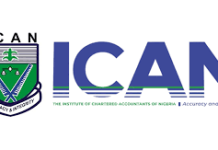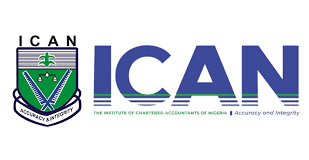The Director-General of the Securities and Exchange Commission (SEC), Dr. Eromomotimi Agama, has revealed that five leading Nigerian banks surpassed expectations in their recent efforts to raise fresh capital, with the offers being oversubscribed.
This disclosure was made during an interview with Bloomberg in Lagos, and highlights the robust demand for investment in the Nigerian banking sector.
“The banks that came to the market are fully subscribed and even oversubscribed,” Agama said, confirming the success of the banks’ capital-raising efforts.
Following the Central Bank of Nigeria’s directive on fresh capital requirements, Guaranty Trust Holdings Plc, Zenith Bank Plc, Access Holdings Plc, Fidelity Bank Plc, and FCMB Group Plc raised a combined total of approximately N1.26 trillion ($770 million) through public offers and rights issues over the past two months. The capital was raised well in advance of the two-year deadline set by the CBN to strengthen their financial positions.
This surge in investment interest is not only a response to regulatory requirements but also reflects growing confidence in the Nigerian banking sector. Dr. Agama further noted that younger investors are becoming increasingly active participants in the capital market, which bodes well for its future growth.
“Young people are beginning to embrace the market, and we’re excited about it. We want to ensure domestic investors, particularly, are more involved in the market,” he stated.
To facilitate greater participation from these young investors, the Nigerian Stock Exchange (NGX) launched NGX Invest, a digital platform that the banks leveraged to promote their share offers. This innovative platform has been instrumental in attracting a younger demographic to the capital market.
Meanwhile, at a stakeholder event themed Financing the Future in Nigeria, organised by the International Finance Corporation and Milken Institute, Dr. Agama emphasised the untapped potential of Nigeria’s capital market in addressing the country’s infrastructure deficit. He stressed the importance of leveraging the capital market to mobilise funds for critical sectors such as healthcare, education, agriculture, and transportation.
“The debt market in Nigeria has not been fully explored. People are not aware of its full potential, which is why we are actively informing them about the capital market’s capacity to drive economic growth. Nigeria’s infrastructure needs are immense, and we are looking beyond $50 billion to bridge this gap,” Agama explained.
He also reiterated President Bola Tinubu’s vision of growing Nigeria into a trillion-dollar economy, stressing that the capital market, along with the mining, oil and gas, construction, and housing sectors, would play a pivotal role in achieving this goal.
“The President has tasked us with growing a one-trillion-dollar economy. This is possible through the capital market. We have the capacity, and we are determined to make it happen,” Agama concluded.
As Nigeria looks to address its infrastructure challenges and strengthen its financial systems, the success of these banks in raising capital demonstrates both the resilience of the financial sector and the growing trust in the country’s economic prospects.













